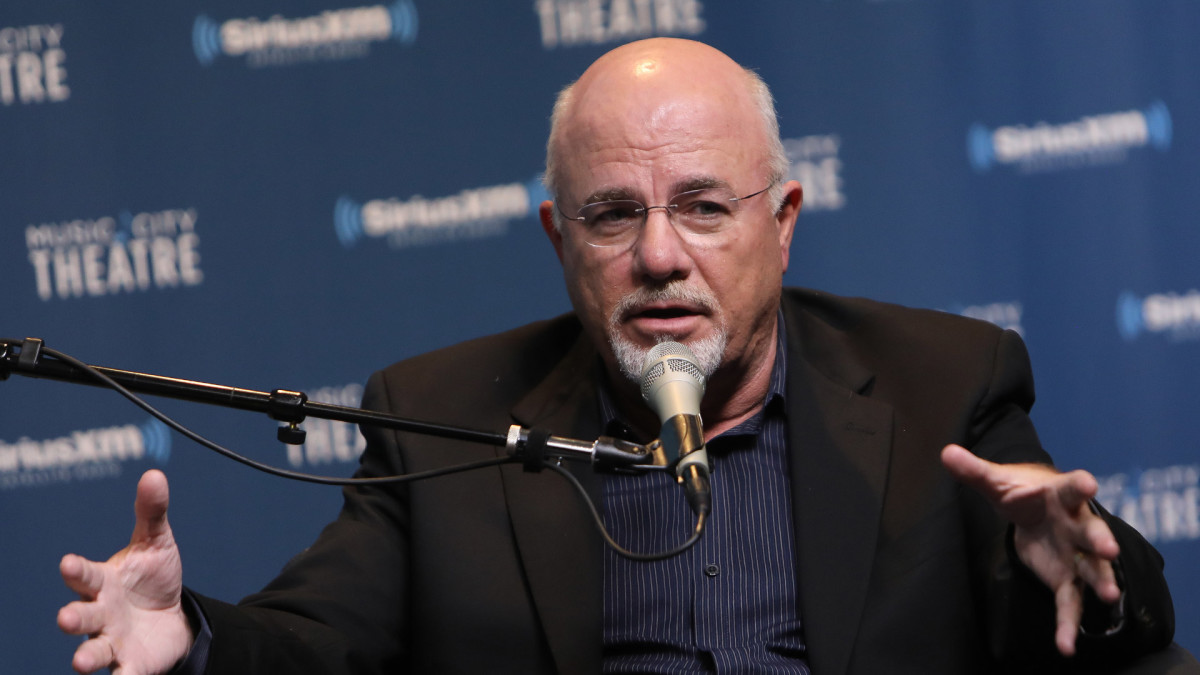
Radio host and bestselling author Dave Ramsey regularly gives people advice on how to take charge of their finances.
Many of his followers are familiar with a set of practices he calls baby steps. These include detailed, yet fairly easy to understand, strategies for success.
Related: Dave Ramsey explains one vital money move everyone should make now
The steps begin with setting up an emergency fund and getting out of debt.
Once these goals are achieved, Ramsey emphasizes the importance of saving and investing for retirement, putting aside money for childrens' college funds, paying off a house (early if possible) and building wealth.
Then, ultimately, Ramsey encourages people to use their accumulated wealth to give back.
Recently, a woman who identified herself as Carlotta asked Ramsey about the fourth of these baby steps, which is the part about saving and investing for retirement.
"Dear Dave," she wrote, according to KTAR News in Phoenix. "I read where you recommend saving 15% of your income for retirement. Should I count my employer's contribution to my retirement plan as part of that 15%?"

Shutterstock
Ramsey explains his view on employer contributions
Ramsey, in his reply, described what he thought the role of company retirement plans should be in an individual's strategy.
"That’s a great question," Ramsey wrote. "Employer contributions do not count toward the 15 percent I recommend setting aside for retirement. It’s great if you work for a company that offers perks like that, but I want you putting 15 percent of your money into retirement."
"Whatever your company matches, whatever its pension may be, or even having a military retirement package, none of that enters the equation," he continued. "I want your money in your name."
Ramsey went into some detail on his recommendations for people beginning to save and invest for retirement.
"Baby Step 4 of my plan says to put 15 percent of your income into retirement accounts," he wrote. "The first thing you should put money into is a matching retirement account. If you’ve got a 401(k), a Roth 401(k) or a 403(b) and your employer offers a match, you should do that up to the match before anything else."
A 403(b) tax-sheltered annuity retirement plan is one that is offered by public schools and certain charities. Like a 401(k) plan, it offers employees the ability to defer some of their salary into individual accounts.
Ramsey offered an example that applies to either plan.
"Let's say your employer will match three percent. Since the goal is 15 percent, that still leaves you with some work to do," he wrote. "You’ve got three percent of your own money already going into retirement, so then you could look at a Roth IRA."
"If the Roth, plus what you invested previously to get the match doesn't equal 15 percent, then you could look at a 403(b), or go back to your 401(k) to hit the 15 percent mark," Ramsey added.
'Control your financial destiny'
The personal finance personality suggested that Carlotta remember she doesn't have to feel as if she is handling this task all by herself.
"And remember, if you’re going to reach your retirement goals, you can't do it alone," Ramsey explained. "That's why you need a quality financial advisor — one with the heart of a teacher — to help you navigate complicated financial issues and guide you toward the kind of retirement you want."
Ramsey then shared with the advice-seeker that he believes she can take control of her situation.
"Do you see what I'm saying here, Carlotta? I want you — not the company you work for — to control your financial destiny. I want you to be able to retire with dignity and enjoy life after working hard and saving."
"The responsibility for making that happens falls to you!"
Get exclusive access to portfolio managers and their proven investing strategies with Real Money Pro. Get started now.







